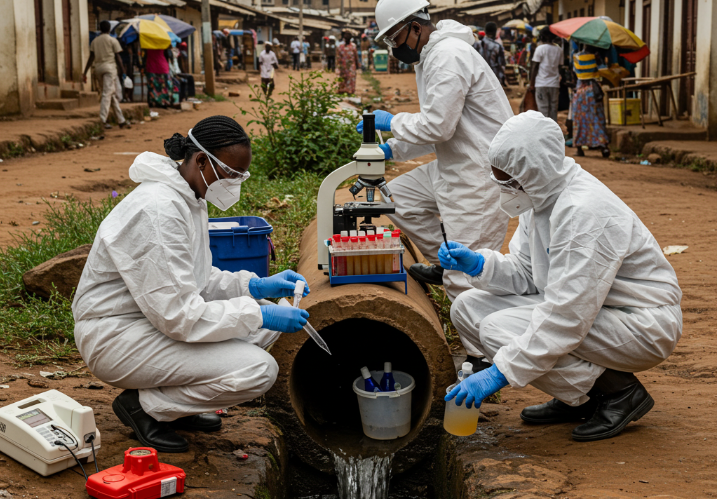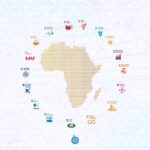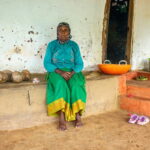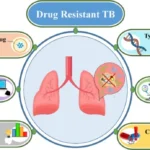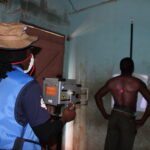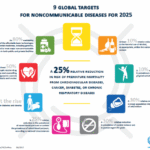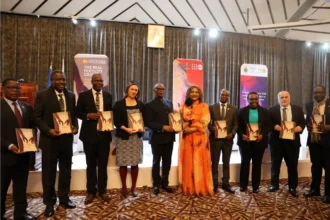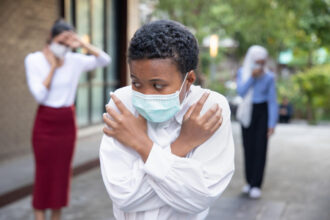JOHANNESBURG, South Africa – In a significant move to protect both public and environmental health, African nations are stepping up their efforts in wastewater surveillance. A concerning report by the United Nations Environment Programme (UNEP) reveals that in many developing countries across the continent, less than 5% of wastewater undergoes treatment before being released into the environment. This alarming statistic poses significant risks of triggering health crises, degrading vital ecosystems, and undermining sustainable development goals.
Recognizing the limitations of solely focusing on expanding wastewater treatment infrastructure, there is a growing consensus on the crucial role of enhanced wastewater data. Improved monitoring can effectively bridge critical knowledge gaps in both public health and environmental oversight, empowering decision-makers to respond to emerging threats with greater speed, precision, and cost-effectiveness.
Spearheading this initiative is UNEP’s Wastewater Surveillance for Africa (WWS) Initiative. This collaborative effort brings together countries within the region to foster the development of affordable and scalable systems for the continuous monitoring and analysis of wastewater. These advanced systems are capable of detecting harmful pathogens and other critical markers, providing early warning signals for proactive disease prevention and control measures. Furthermore, they can identify escalating risks and potential threats to both human and ecosystem health.
“This initiative is about empowering relevant stakeholders in African countries,” emphasized Heidi Savelli-Soderberg, Chief of UNEP’s Source to Sea Pollution Unit. “It will provide the space for them to share their experience on wastewater and environmental surveillance, and to learn from each other how to turn data into action.”
Global statistics paint a stark picture, with a joint UNESCO and UN-Water report indicating that a staggering 42% of household wastewater remains untreated worldwide, exposing billions to increasing health risks from water pollution. The situation is even more critical in many African nations, where a report by the African Development Bank group reveals that over 90% of wastewater is discharged untreated into rivers, lakes, and oceans. The impact is particularly severe in low-income countries, where waterborne diseases, the spread of antimicrobial resistance, unsustainable food systems, and the unsafe reuse of water remain widespread challenges.
Launched in 2024, the Wastewater Surveillance for Africa Initiative aims to fortify wastewater and environmental surveillance systems across the African region. A key objective is to equip countries with the necessary technical expertise and human capacity to effectively utilize these systems in safeguarding both environmental integrity and public health.
Against this backdrop, government representatives, scientists, and partner organizations from 16 African countries convened at the Southern Africa Regional Workshop on Wastewater Surveillance for Environmental and Public Health in Johannesburg from April 8th to 10th, 2025. The workshop, organized collaboratively by UNEP, the World Health Organization (WHO), and the Southern African Development Community (SADC), focused on identifying key priorities for a comprehensive wastewater management roadmap and fostering synergies between various sectors.
Participants at the workshop actively engaged in knowledge sharing and the exchange of best practices from across the region. They also identified critical capacity-building needs to facilitate the scaling up of wastewater surveillance efforts within their respective countries. The adopted roadmap, along with a comprehensive capacity assessment and valuable feedback from participating governments, will inform the next crucial steps across the region. These steps will be directed towards scaling up targeted solutions, strengthening existing institutional frameworks, and mobilizing essential investment for robust wastewater surveillance and sustainable wastewater management practices throughout Africa.
This significant workshop is a key component of UNEP’s 30-month Initiative, “Wastewater Surveillance for Africa” (WWS), which is generously funded by the European Union’s Health Emergency Preparedness and Response Authority (HERA).

